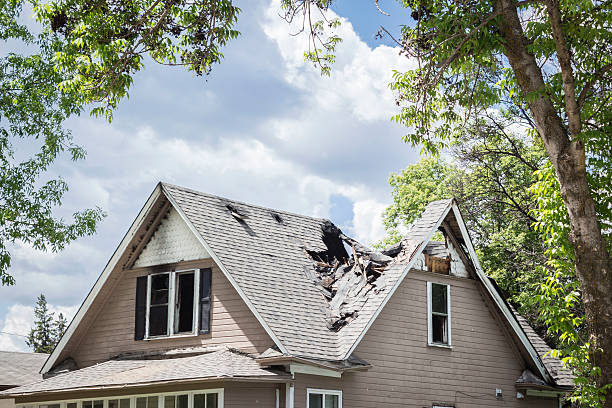Owning or renting a home is one of the biggest financial responsibilities many people take on. Whether you’re protecting a family home, a rental property, or a small apartment, having the right home insurance can make a major difference when unexpected events happen. From fire and floods to theft and structural damage, home insurance offers peace of mind by helping you recover financially if something goes wrong.
This guide explains how home insurance works, what it typically covers, and how to choose a policy that fits your needs and budget.
What Is Home Insurance?
Home insurance (often called homeowners insurance) is a type of policy that protects you financially if your home or belongings are damaged, destroyed, or stolen. While it’s not legally required in most places, many mortgage lenders will require you to have coverage for the property they’re financing.
There are generally two main types of home insurance:
- Buildings insurance – Covers the physical structure of your home and anything permanently attached to it, such as walls, roofs, floors, fitted kitchens, and bathrooms.
- Contents insurance – Covers your personal belongings, such as furniture, clothing, and electronics.
A simple way to remember the difference:
If you could turn your home upside down and shake it, everything that falls out is “contents,” and everything that stays in place is “buildings.”
Some people choose combined policies that include both, while others prefer to buy them separately.
Why Home Insurance Matters
While home insurance is optional for homeowners who own their property outright, it’s an important safeguard. Natural disasters, fires, break-ins, and water leaks can cause significant damage that would be extremely costly to repair or replace out of pocket.
Having a reliable policy means that if the worst happens, you can focus on recovery rather than worrying about the financial burden.
For renters, contents insurance is especially important. Your landlord’s insurance usually won’t cover your personal belongings, so you’ll need your own protection. Similarly, landlords require specialized policies that include coverage for property damage, liability, and sometimes loss of rental income.
What Does Home Insurance Cover?
Coverage details vary between providers and policy types, but here’s what is typically covered:
Usually Covered
- Fire and smoke damage
- Burst or leaking pipes
- Theft or vandalism
- Storm and flood damage
- Accidental damage (depending on the policy)
- Subsidence or structural movement
Not Typically Covered
- General wear and tear
- Pest or pet damage
- Damage caused by neglect or lack of maintenance
- Boiler breakdowns (unless you add a specific policy)
- Portable items outside the home, unless specified
You can often add optional extras, such as accidental damage cover, home emergency protection, or coverage for high-value items like jewelry or bicycles.
How to Choose the Right Policy
Choosing the right home insurance means balancing cost with adequate protection. Here are some key steps to help you find the best fit:
Assess Your Needs
Start by identifying what you need to protect. Homeowners with a mortgage will likely need both buildings and contents insurance, while renters can focus solely on contents cover.
Use Online Tools
A contents calculator can help you estimate the total value of your possessions, while a rebuild cost calculator can estimate how much it would cost to rebuild your home from the ground up. This helps you avoid over- or under-insuring.
Compare Quotes
Insurance costs can vary widely between companies. Comparing multiple quotes online gives you a clearer picture of what’s available. Make sure to compare policies with similar coverage levels to get an accurate comparison.
Check Exclusions and Limits
Always read the policy wording carefully. Look for exclusions, single-item limits, and optional cover options before committing. If you have valuable possessions worth more than the standard limit, consider listing them separately in your policy.
Tips to Save on Home Insurance Premiums
Home insurance prices fluctuate, but there are several ways to reduce your premiums responsibly without cutting corners on coverage:
- Avoid over-insuring or under-insuring: Insure your home for its rebuild cost, not its market value, and ensure your contents are accurately valued.
- Improve security: Installing locks, alarms, smoke detectors, and smart security systems can lower your risk profile and potentially reduce your premium.
- Pay annually: If you can, paying for the full year upfront often works out cheaper than paying monthly.
- Build a no-claims history: Insurers may offer discounts for each year you go without making a claim.
- Increase your voluntary excess: A higher deductible usually means a lower premium, but make sure you can afford it if you need to file a claim.
- Bundle your policies: Some insurers offer discounts when you combine your home and auto insurance with the same company.
Does Credit Score Affect Home Insurance?
In some regions, insurers may check your credit file when you apply for home insurance. This is usually a soft credit check, meaning it does not affect your credit score. It simply helps confirm your identity and assess your application.
If you have a strong credit history, it may sometimes help you access better terms, as it suggests reliability. However, the effect varies between insurers and is not the only factor in determining your rate.
Special Considerations
If you plan major home renovations, like adding an extension or converting an attic, always inform your insurer before work begins. Some policies exclude structural changes unless approved in advance.
Similarly, if you own high-value items such as artwork, watches, or premium electronics, ask your insurer whether they need to be individually listed on your policy.
The Bottom Line
Home insurance protects what’s often your biggest investment — your home and your belongings. While not legally required, it offers financial stability and peace of mind in unpredictable situations.
By understanding how coverage works, accurately valuing your property, and comparing quotes regularly, you can find a policy that meets your needs without paying more than necessary. Small steps like improving home security, maintaining a good claims history, and paying annually can make a meaningful difference over time.
Regularly reviewing your policy ensures you stay protected as your life and property evolve — helping you feel confident that your home, family, and finances are safeguarded.






